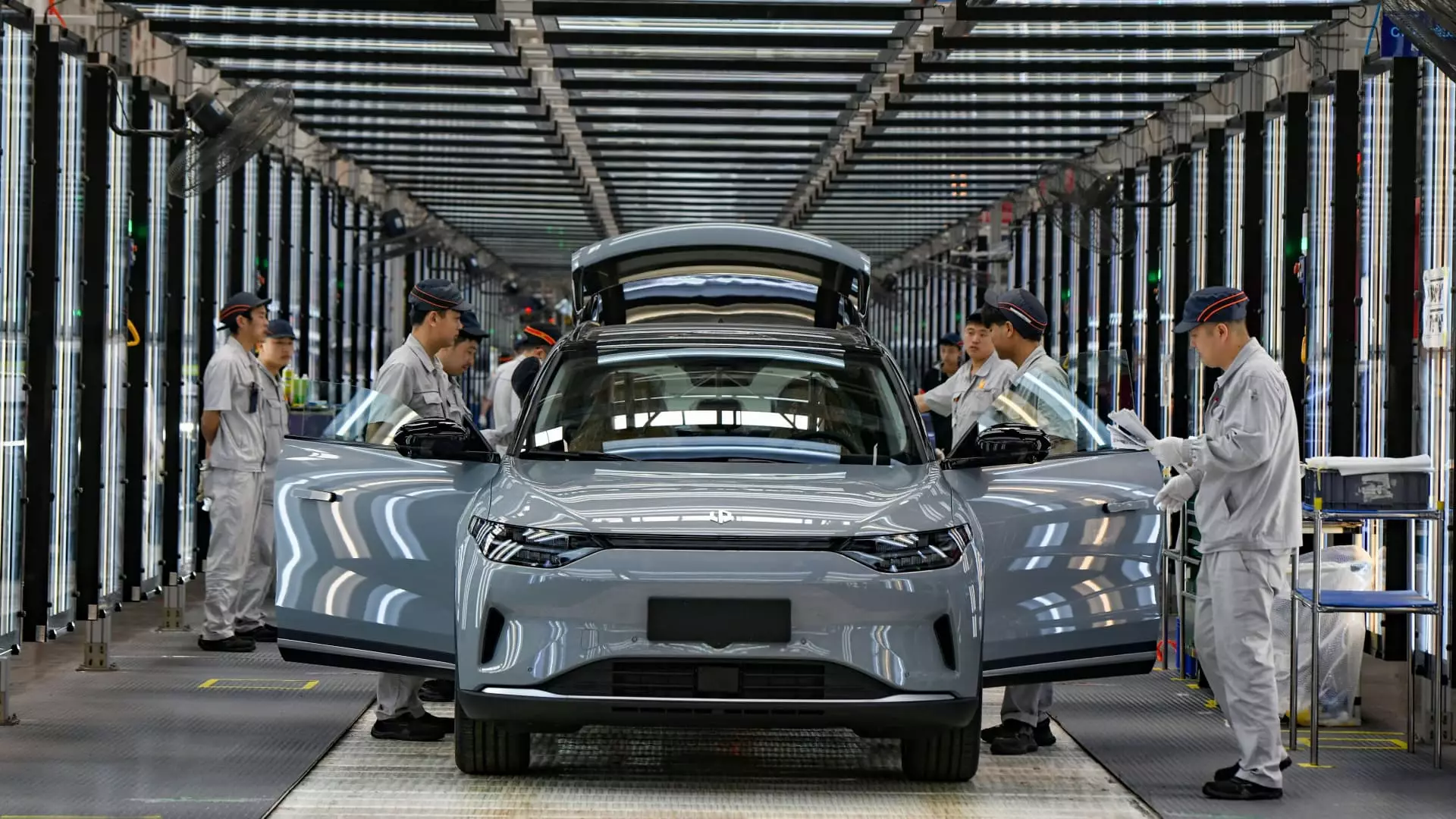The recent announcement of tariffs by U.S. President Donald Trump has sent shockwaves through the global automotive industry, drawing a stark reaction from investors and companies alike. Implemented as a response to ongoing geopolitical concerns, these tariffs—set at 25% on goods from Mexico and Canada and 10% on various products from China—have sparked fears of a trade war that could reshape the automotive landscape. Understanding the implications of these tariffs reveals not just immediate financial impacts, but also a broader narrative about globalization, manufacturing, and international trade relations.
In the wake of Trump’s executive orders, major automotive stocks faced significant declines. Companies like General Motors and Ford saw their shares plummet, underscoring investor concerns over the ramifications of potential trade barriers. The drop in stock prices is indicative of deeper uncertainties regarding future profitability amid rising production costs and supply chain disruptions. For instance, analysts reported a staggering 6.6% decrease in GM’s shares and a 4% decline for Ford, reflecting investor sentiment that these tariffs threaten not only individual companies but the entire automotive sector’s viability.
Similar reactions were observed internationally, with European firms like Valeo and Stellantis experiencing sharp stock declines. The repercussions weren’t limited to U.S. firms; even Japanese automotive giants such as Toyota, Nissan, and Honda suffered notable losses in their share values. This was a clear message from the market that investors are wary of a potential escalation in trade tensions and its impact on global supply chains, particularly given the heavy reliance on manufacturing operations across North America.
As tariffs were announced, Canada and Mexico quickly indicated their intention to respond with retaliatory measures. The specter of mutual tariffs looms large, with potential implications that could exacerbate the already fragile trade relations between these nations. If retaliatory tariffs are enacted, it’s likely that the effects would spiral into a broader trade war, further straining an already complicated international trade environment. Such a development would not only affect the automakers but would also have rippling consequences for consumers, prices, and employment across the border regions.
Experts in industry analysis stress the long-term impact these tariffs could have on the automotive supply chain. Many manufacturers operate on a just-in-time basis, relying on smooth and efficient movement of parts and materials across borders. The imposition of tariffs disrupts this finely tuned system, with manufacturers now facing increased costs that could lead to higher retail prices for consumers.
Furthermore, Trump’s suggestion that the European Union (EU) may soon face similar tariffs escalates these concerns. A significant portion of the EU’s car exports are destined for the U.S. market, where tariffs could blunt European manufacturers’ competitive edge. According to an analysis from Oxford Economics, higher costs stemming from tariffs would likely discourage U.S. consumers from purchasing imported European vehicles, leading to a decline in auto exports and potential job losses in the EU.
For Europeans, the threat of U.S. tariffs adds another layer of complexity to an already challenging economic environment. Germany’s major automotive manufacturers, including Volkswagen, Mercedes-Benz, and BMW, have been facing sluggish demand in key markets, such as China. With profit warnings becoming commonplace in recent months, the introduction of new tariffs could amplify these financial stresses. Volkswagen, in particular, has stated it is evaluating the tariffs’ potential effects on its operations, relaying a clear message of concern about future economic stability.
The sentiment among industry leaders is demonstrative of a broader recognition that cooperation and trade liberalization serve as bedrocks of economic growth and innovation. BMW’s assertion that free trade drives progress while tariffs stifle it reflects a consensus that sound trade practices are vital for a thriving automotive sector.
The recent implementation of tariffs by the Trump administration marks a pivotal moment for the global automotive industry, intertwining the fates of manufacturers across continents. As companies grapple with the immediate financial impacts, the broader implications for trade relations and economic stability cannot be overlooked. With both U.S. and international manufacturers facing uncertain futures, the call for open markets and constructive dialogue becomes more pressing than ever. How the current trade dynamics evolve will ultimately shape the automotive industry’s landscape for years to come, underscoring the interconnected nature of today’s global economy.

